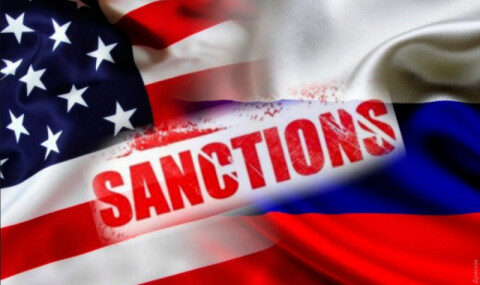The US found a new way of putting pressure on Russia through sanctions

МОСКВА, 04 сентября 2021, Институт РУССТРАТ.
In the New York Times, a loud article, made in accordance with American standards, was published. Its author categorically states that Washington has almost exhausted the potential of its sanctions. It turns out that there is nothing more to put pressure on geopolitical opponents, even such large ones as China and Russia.
And the unilateral sanctions imposed earlier against Russia “are no longer effective.” In this regard, the US administration “urgently needs to come up with something”. And, it seems, it came up with an idea: the US Department of Commerce announced the launch of an investigation into the compliance of the Russian economy with the market status granted to it in 2002.
The basis for this was a statement from the fertiliser manufacturer CF Industries Nitrogen and its subsidiaries for allegedly deliberate price dumping from the side of imported Russian liquid nitrogen fertilisers (urea-ammonium nitrate, UAN).
Somehow, suddenly, it appeared to American businessmen that the Russians “learned how to do business”. Not just through bribes, but methodically correctly, with the construction of effective business processes, cost optimisation and rationalisation of logistics. In addition, Russia has its own quite extensive reserves of raw materials, which encourages production to form vertically integrated companies that provide good conditions for lowering prices while simultaneously increasing profits.
As a result of this, Russia, in the IMD World Competitiveness Ranking of the world’s global competitive countries, rose from 50th to 45th place. And although the United States ranks 10th in it, in a number of industries American business has started to lose to Russian business.
Not so globally and overwhelmingly, but according to Independent Commodity Intelligence Services, in 2019, Russia held a 31% market share of phosphate fertilisers in the United States. And this is despite the fact that ten years earlier this share did not exceed 8-9%.
In terms of money, this is not so much. Russian imports of phosphate fertilisers to the United States in 2019 amounted to 740,000 tons with revenue of $299 million. For that matter, fertilisers from Morocco were brought to America for 729 million. But the fact itself counts.
In addition, it became urgent for Washington to find something to seriously find fault with Russia. If they find grounds for revoking the status of a market economy, then the US Department of Commerce gets the opportunity to recalculate the cost of production of Russian products at the rates they themselves have adopted. Such as it is in normal market-type economies.
If the results of the recalculation come out significantly more expensive than the price at which the Russian manufacturer supplies the goods to America, it means that the economy is not recognised as a market one, and the supply as a dumping one. For the amount of dumping, the US customs gets the right to establish protective import duties.
This technique is convenient for two points. First, by local standards, it cannot be attributed to any offensive sanctions. Moreover, it’s impossible to declare the politicisation of their introduction. Pure “legitimate protection of a domestic producer” strictly within the framework of WTO norms.
Secondly, the verification procedure itself is such that it easily allows to get the “needed” result in the end. Officially, the assessment of the degree of marketability of a particular economy by the US Department of Commerce is made on the basis of six parameters:
– the degree of convertibility of the currency of a foreign state into the currencies of other countries;
– the extent to which the salary rates in the country are determined through free negotiations between the employee and the employer;
– the extent to which foreign investments and joint ventures are allowed in the country;
– the degree of state ownership or control over the means of production;
– the level of state control over the allocation of resources and over the decisions of enterprises on prices and output;
– other factors that the regulator deems necessary.
Is it any wonder that according to such rules, the result of the US Department of Commerce usually comes out “as it should”? Especially that it is impossible to challenge it in the WTO right now. The body designed to consider such disputes within the framework of the WTO mechanism is currently incapacitated due to a critical shortage of judges. Some have retired due to age, others’ terms of office have expired. And the approval of new ones is blocked precisely by America.
So the American Ministry of Trade will most likely achieve its goal. It’s only a matter of time. Another thing is whether Russia should continue to just wait for another nasty thing “from our foreign partner” or, finally, think about the expediency of maintaining membership in the WTO and transferring the structure of the economy to an optimal scheme of work outside the international trade organisation?
At the beginning of the noughties we needed the WTO to facilitate access to the American and European markets. Now we are in the conditions of sanctions that will never be lifted. This forces Russia to develop other markets where WTO rules are not of significant importance.
This has been said for more than one year. So, maybe Washington itself has provided a convenient reason to transfer the matter from theoretical conversations to concrete practical actions?
 Институт международных политических и экономических стратегий Русстрат
Институт международных политических и экономических стратегий Русстрат
(@russtrat)

